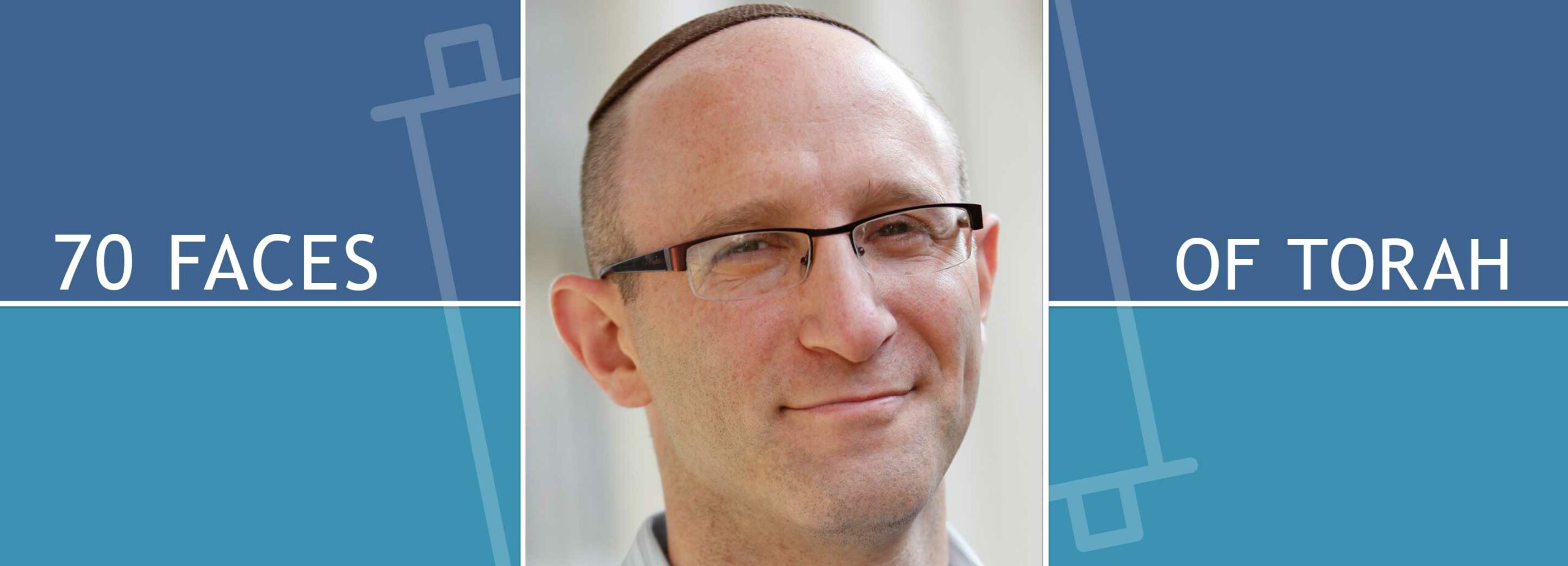Seventy Faces of Torah Leaving Egypt, Over and Over Again

Parashat Eikev (Deuteronomy 7:12–11:25)
The central drama of much of the Torah is the story of the Israelites leaving Egypt and forming a new way of life according to God. This week’s parashah, Eikev, highlights a question that has been a persistent fear throughout this saga: can we ever really leave Egypt?
In an evocative passage in this week’s parashah, the Torah describes Egypt as a place where “you plant your seeds, and water them by your own power, like a vegetable garden.” (Deuteronomy 11:10) While it sounds like a place of self-sufficiency, it is actually a very impoverished version of existence. The medieval commentator Rashi describes it as a place in which people’s lives were completely consumed by subsistence labor, even waking themselves up from sleep to toil.
Such a state of being is an expression of a myopic sense of place in the world in which one thinks the individual is the center, capable of controlling her own destiny through effort and ingenuity. One is literally incapable of dreaming as the horizons of the imagination telescope to the self. To live like this requires an extraordinary conscious or unconscious effort of repression, the denial of human frailty.
An ancient teaching about Pharaoh captures this exquisitely: In the midst of the story of the Exodus, as Pharaoh repeatedly refuses to let the people leave Egypt, God sends Moses to Pharaoh, specifically in the morning as he is going the Nile River (Exodus 7:15). It is a strange and alluring instruction for the encounter.
Midrash Tanhuma, a collection of early rabbinic interpretations of the Torah, reads into this narrative detail that Pharaoh was sneaking out before people were up and about to relieve himself in the Nile River. Pharaoh had “made himself into a god” and since a god is all powerful and has no needs, Pharaoh was trying to hide from others–and himself–that he needed to use the bathroom, that he was vulnerable and incomplete.
The delusion of completeness–of thinking that through our own efforts we can fully control our lives and be divorced from our context– can also seize us at moments of great abundance. “When you have eaten your fill, and have built fine houses to live in,” when all is going well in your life, be careful that you don’t fall into the false understanding that “my own power and the might of my own hand have won this wealth for me” (Deuteronomy 8:12; 8:17). Football coach Barry Switzer borrowed this idea with his now-famous quip: “Some people are born on third base and go through life thinking they hit a triple.”
The Land of Israel represents a very different orientation to our place in the world. There, in contrast to Egypt, “the heavens” water the land while God “seeks it, constantly keeping God’s eye on it.” (Deuteronomy 11:11-12) The spiritual and mental state of being in Israel is one of recognizing our incompleteness and being reliant on forces beyond our control for our existence. It is not a state of complete dependence. Sometimes the water from heaven that comes down of its own accord is sufficient to water the fields, but sometimes we must gather the water, dig wells, make cisterns, and create systems for irrigation.
What’s more, God seeks us in this place, suggesting a partnership between human beings and God in shaping the world. Jewish tradition insists on the mutuality of this collaboration. Rabbi Elimelech of Lizinsk, an 18th century Hasidic rabbi and author of Noam Elimelech, rereads an earlier passage in this parashah to make this point. “Now Israel, what does God ask (shoel) of you?” (Deuteronomy 10:12) The Noam Elimelech notices that the word “shoel” can also mean borrow in Hebrew and reads this question to be “under what conditions will God borrow the vessel that is you to fill it with good and blessing?” God needs us for the flow of God’s love to come into the world, God “seeks” us as it says in Deuteronomy 11:11, but we have to be fitting vessels for the flow. We make ourselves fit for receiving this Divine bounty through our loving and awe filled service of God and the world, by reaching out to the world and to God.
In this reading, the Land of Israel is a place of interdependence–of partnership and collaboration with the universe. Being there acknowledges the fullness of existence, of our capacity and our limitations, of how we shape our lives and how our lives are shaped by forces beyond our control. It is a scarier place because it acknowledges our vulnerability, our dependence on others and the world around us; but it is also real, even if we pretend otherwise.
Most of us can never fully leave Egypt. The temptation to return hovers around the edges of our consciousness, waiting to be let in, to lure us back. Our challenge, as the Bible scholar Yochanan Muffs writes, is to imitate God, “by undertaking an act of bravery, a leap of faith . . . by reaching out to the other, to communicate, to love.”
Rabbi Daniel Klein is the Dean of Students for Hebrew College’s Graduate Leadership Programs and Rabbi in Residence at The Boston Synagogue. A lifelong seeker, Rabbi Klein lived, studied and worked in Chicago, San Francisco, and New York before finding his way back home to Boston as a rabbinical student. Rabbi Klein was ordained by Hebrew College in 2010 and now lives in his hometown of Newton, Mass., with his wife, Jen, and their two children, Micah and Nora.

